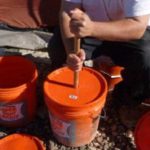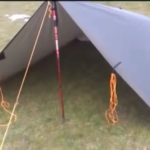The single, most important thing that you can do when preparing for any kind of survival situation is to give yourself plenty of options. This includes developing contingency plans, having alternate escape routes and building sources of resources that are situated at various locations. It also involves expanding your set of skills so that you can adapt and thrive when your back is against the wall. Let’s look at some things that you can start to do right now so that you will minimize your exposure to losses.
Diversify Your Survival Portfolio
You want to keep your resources in different places in the same way that you never want to put all of your money into a single investment. This may include keeping stockpiles of gear and goods at various locations or safe houses. It may involve having more than one vehicle that is equipped for a bug-out situation. It may involve having money stashed away in more than one place. Only you can decide how these factors apply to your situation, but it’s important that you give some serious thought and attention as to how to make this happen.
Expand Your Skill Set
Identify your strengths and weaknesses, and take time to develop the skills that you currently lack. It may be that you are very proficient when it comes to fixing things and tinkering in the garage, but you have limited experience with bush-craft. Perhaps you have strong intuitive skills and the ability to read people, but you don’t know good self-defense techniques. Take a really good and honest look at areas that need more attention as you progress through your survival preparations and get to work on building those skills.
Work With Others
There is a lot of discussion out there about how much of your preparation efforts you want to share with others. The fear is that you will be at a greater risk of encountering problems if the SHTF happens and people come after you and your supplies. However, keep in mind that most survival situations that you will encounter will be less dramatic and severe. Working with others and building cooperative relationships can only serve to help everyone involved during and after a crisis. It is especially important to work with people who have skills and resources that you lack so that you have a better chance of covering all of your bases.
Never Rely on One Plan
All it takes is one variable, a small detail or a minor miscalculation to put the best made plans into disarray. Never count on one plan to work flawlessly and get you from point A to B without being thrown some kind of curve ball. Always have backup options in place, or at least continually think about variations so that you will be prepared to meet unexpected challenges head-on without panicking or being up the creek without a paddle.
The basic principles that surround survival involve being ready, making good choices and taking appropriate action. However, you must incorporate diversity into your efforts so that you can minimize the chances of being caught off-guard at the worst possible time.



















